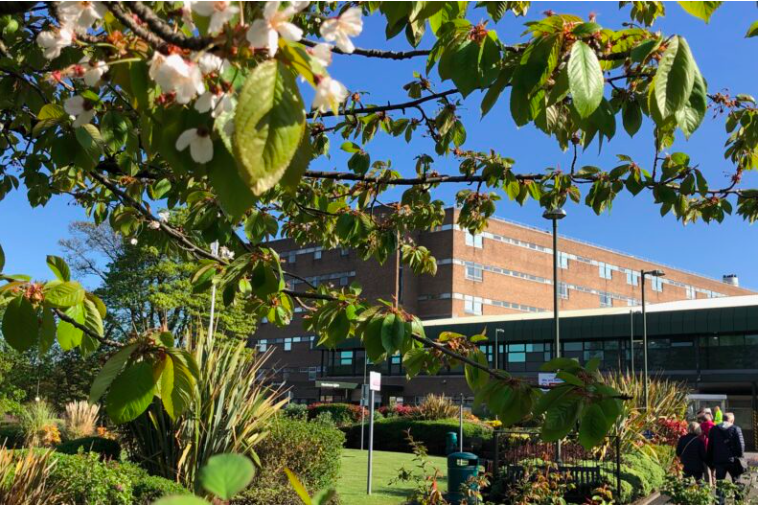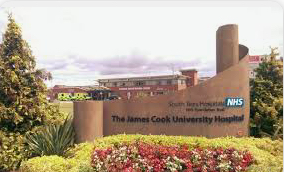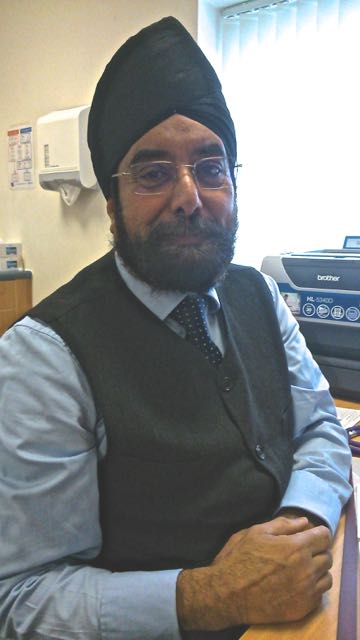Nearly one in two people born in the UK after 1960 will be diagnosed with some form of cancer during their lifetime, according to Cancer Research UK.
That feels about right judging by my friends and acquaintances. The good news is that most of those I know who’ve had cancer are still here 10 or 20 years later.

So isn’t it time we took a calmer, more realistic attitude to the “Big C” – being alert to the warning signs so we can seek help early, when treatment is most effective.
This is important after recent research, funded by Cancer Research UK, showed that progress in the 10-year cancer survival had stalled in recent years.
I speak from experience. A decade ago, I was midway through a year-long battle with bowel cancer: five weeks of daily radiotherapy, two operations, and six months of chemo tablets as a “belt and braces” precaution.
Now, my wife Ann – or Hannah to give her the Sunday-best name – is the patient.
In this blog, I want to compare our experiences and recommend better communication between different parts of the NHS, which can’t just rely on greater use of Artificial Intelligence (AI), as some people in government are suggesting.
Communications between hospitals and GP surgeries needs a human-touch and someone to read and understand how patients are being treated and their needs.
Two journeys, ten years apart
In Ann’s case, her liver cancer was discovered last year after a routine scan at James Cook University Hospital in Middlesbrough for something else.

She was initially treated in Newcastle, an hour’s drive away, where she agreed to give samples to help joint academic-NHS research trying to capture cancers at early stages in a project involving both Newcastle and Oxford universities and Freeman Hospital.
Now she’s been transferred to our local James Cook Hospital (ten minutes away) for immunotherapy and the service from the oncology team there has been excellent.
Back in 2015, she was accompanying me to the same hospital in Middlesbrough, shortly after she took early retirement from Teesside Uni. Now, the roles are reversed.
It’s been fascinating to see what has changed in a decade, especially after years of government austerity and the pressures of Covid.
While we’ve found both hospitals excellent, despite the enormous pressure they are under, with Ann’s specialists, Professor Reeves in Newcastle and Dr Wilson in Middlesbrough, being brilliant, there seems to be something of a communication problem between the hospitals and local GP services.

Thankfully, it looks like that is now being fixed.
Loss of GP personal touch
Ten years ago, you knew your doctor personally. Mine was Dr Basson and he kept in touch throughout my cancer journey.
Now that has been lost and you are lucky to get a face-to-face appointment rather than a telephone chat.
It was thanks to Dr Basson that the alert was raised when I casually mentioned seeing blood in my poo – a red flag for bowel cancer – as I was about to leave an appointment about something else.
He immediately sent me for tests, and after my operation he did a house visit when post-surgery complications hit.
In contrast, Ann heard nothing from our GP surgery for 18 months after her diagnosis — despite the hospital keeping them informed of the different treatment she was undergoing.
We know the hospitals told the GP surgery how Ann was doing because we received copies of the correspondence.
Earlier this month (September 2025) a new system was introduced with the Macmillan Cancer Support service and local GPs who have started writing to cancer patients to offer extra support.

That such a letter took nearly a year-and-a-half to arrive in Ann’s case probably shows the strain the local GP service is under.
It was well-meaning and said they were ‘sorry to hear of your recent cancer diagnosis’, but they were talking about something she had been coping with for 18 months. When Ann phoned the surgery, she was told these letters were part of a new service, so a hopeful sign that things may be getting better.
Not just about us
This isn’t just about us — we have each other and family nearby. But what about elderly patients living alone with no one to advocate for them?
I’ve seen similar communication gaps elsewhere with changes recommended to my heart disease medication by heart nurses needing me to chase things up with the GP surgery.
I know local doctors are under pressure and many of the old timers, like Dr Basson, have now retired, but the personal touch should not just be a thing of the past.
Lives are at risk here or, at least, the well-being of patients!
- Ten-year cancer survival rate: In a recent report I wrote for University World News, I quoted from some recent research by the Cancer Survival Group at the London School of Hygiene and Tropical Medicine, which showed the 10-year survival levels for cancer patients more than doubled between the early 1970s and 2018, rising from 23.7% to 49.8%. But since then progress has largely stalled, as pressure on the National Health Service cancer services led to longer delays in patients receiving diagnosis and treatment. Some cancers fared better than others. The details are in my story headlined ‘Progress in cancer survival rate stalled after 2010’ which you can read for free here.
- Main photograph shows Nic Mitchell in the James Cook University Hospital radiotherapy department at the start of his cancer treatment journey in early 2015.





